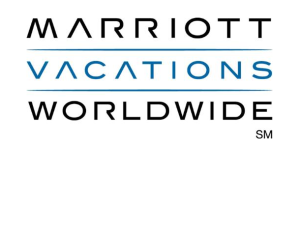The House Stealing of Vacation Homes Reminds Us Why Timeshare Ownership Makes Sense
Saturday, October 17, 2009
Since the media seems to prefer to cover more stories of timeshare scams and problems than the testimonials of the many very happy timeshare owners, it can be easy to get the impression that timeshare is the only part of the vacation industry where unscrupulous people try to make money by preying on others.
But when you hear the recent accounts of house stealing, you realize that no industry can be fully insulated—no matter how hard they many try.
House stealing is a crime on the rise and while it shows up in all areas of real estate, privately owned vacation homes can be especially vulnerable.
The crime begins with the identity theft of the vacation home owner (although any property can be at risk). At a vacation home, it can be especially easy to set up mail delivery to the physical address because the absentee owner might never realize this has occurred. However, even safeguarding your mail delivery is not enough to protect you. Home stealers can also operate without access to your mail.
The criminal then uses standard forms for real estate transfer (available at any office supply store) to transfer your vacation home property (at this point they have fake IDs to prove they are “you”) to whomever is their working partner in their crime or even back to their own real identity. Now they appear to own your home, which they can then sell or refinance—either way, keeping any cash for themselves.
Some vacation home stealers take photos of the property to make it easier to sell it online. Out of state buyers may not visit the home for many months. Little will that buyer know that the photos (which could be real pictures of your vacation home or could be photos of any other property) and the keys he received to the front door are totally bogus.
Self Defense for Vacation Home Owners
Owning a vacation home you only visit occasionally has always come with its own measure of challenges, including maintenance, security, and ongoing repairs that all fall to the homeowner. Now it seems that the risk of scams, fraud, and house stealing have become part of the package too.
Here’s what the FBI advises to help you protect yourself, “From time to time, it’s also a good idea to check all information pertaining to your house through your county’s deeds office. If you see any paperwork you don’t recognize or any signature that is not yours, look into it.” They also suggest that you be vigilant about getting to the root of any documents you receive in the mail that are related to a mortgage or property transaction. Don’t just assume that because they aren’t from your mortgage company that they are a paperwork error. They could be the tip of the iceberg to a serious crime, of which you may be the victim.
The Timeshare Alternative
Owning timeshare means vacation ownership where you only pay for the days and nights you are entitled to use the property—and not for all the days your schedule wouldn’t permit you to be enjoying it anyway.
Timeshare ownership means that someone is always at your resort property, 365 day a year. Your timeshare vacation home is never a vulnerable empty site, prey to criminals.
When repairs or maintenance is warranted, your timeshare is covered. Your annual fees, along with the fees of all the co-owners at your timeshare resort, take care of not only the cost of the service but the property management to get the job done and follow up that it is done properly.
Owning a timeshare or timeshare resale gives you vacation opportunities at your favorite destination, but, let’s face it, it eliminates many of the vacation homeowner headaches and concerns.


